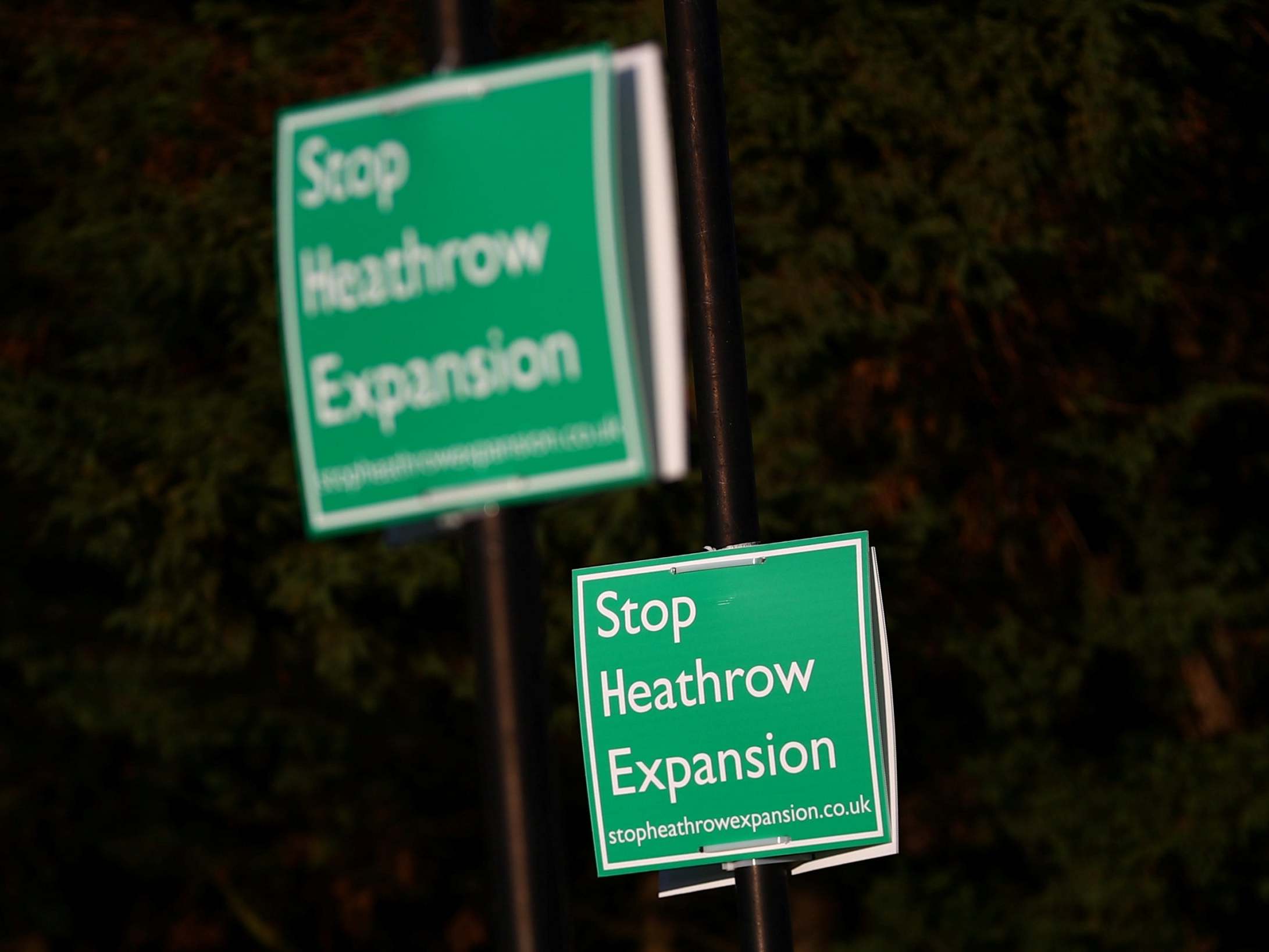After Heathrow, what other projects could be cancelled over the climate crisis?
It is hard to see how the Paris Agreement is compatible with plans to expand airports at Birmingham, Leeds Bradford, Manchester and Southampton, writes John Rentoul


If the third runway at Heathrow has been blocked because the government failed to take climate change into account, how many other carbon-heavy projects are now at risk?
That is not in fact what the Court of Appeal ruled on Thursday. It said only that Chris Grayling, the former transport secretary, had failed to take into account the Paris Agreement when he gave the go-ahead to Heathrow’s expansion.
All the government had to do, therefore, was to say that it had taken the treaty into account. Other countries seem able to go ahead with new runways while being signatories to the Paris accords. Indeed, other airports in the UK are going ahead with expansion.
Instead, Grant Shapps, the new transport secretary, with Boris Johnson’s approval, said that he would not appeal against the court’s decision. It looks as if the prime minister has used the court case as an excuse to abandon a project to which he has long been opposed, as London mayor and as an MP for a west London seat.
It has been suggested that the Heathrow ruling puts dozens of airport, road and energy projects at risk. It doesn’t, directly, but it does pose the question of what the implications would be if the government were serious about meeting the targets implied by the Paris treaty.
The treaty aims to limit global average temperature rises to between 1.5 and 2 degrees above pre-industrial levels. It does not set targets for individual countries, but Theresa May, in one of her last acts as prime minister, committed the UK to becoming carbon neutral by 2050.
It is hard to see how that target is compatible with plans to expand airports at Birmingham, Bournemouth, Bristol, Gatwick, Leeds Bradford, Manchester and Southampton. Aviation is not a huge contributor to carbon emissions, but it is fast growing, and the technology for electric aircraft is a long way off.
That does not apply to new rail and road schemes. HS2, for example, will be electric, so if the electricity to power it is generated from wind, solar, hydro and nuclear, it will be low-carbon. Electric vehicles are similarly the key to decarbonising road traffic – and they are already technologically and economically viable, unlike electric planes.
Less climate-friendly are plans for four new gas turbines at Drax power station in North Yorkshire, which were approved by the government last year. They are being challenged by environmentalists, whose hopes have been raised by the Heathrow ruling, even if it may not be directly relevant.
If the UK is serious about becoming carbon neutral, this requires further dramatic changes in how we generate electricity; the abolition of petrol and diesel vehicles; and the replacement of the entire nation’s domestic gas boilers. Against that background, the case for more runways and more gas-fired power stations seems weak.
Join our commenting forum
Join thought-provoking conversations, follow other Independent readers and see their replies
Comments